Joanna Lee and Maria Garbutt-Lucero
Maria Garbutt-Lucero and Joanna Lee co-founded the ESEA [East & Southeast Asian] Publishing Network in September 2022 to amplify the voices of East and Southeast Asian writers and promote ESEA talent working across the UK publishing industry.
In January 2023, they announced the launch of ESEA Lit Fest, the UK’s first literary festival dedicated to literary work by East and Southeast Asian authors, with Foyles. It took place at Foyles Charing Cross Road on September 23, supported by Curtis Brown, and C&W Agency, and Hachette UK and their employee network THRIVE. It has been featured in the Guardian, Harper’s Bazaar, Elle, and The Bookseller.
Sign up to their mailing list (eseapublishingnetwork@gmail.com) for updates and follow on Instagram and Twitter - they’re open to all!
Joanna Lee is an editor at Atlantic Books, where she commissions literary fiction, poetry and select non-fiction.
Maria Garbutt-Lucero is Publicity Director at Sceptre, with a focus on literary fiction and non-fiction and some celebrity memoirs.
For more on each interviewee, please scroll to the end of the interview.
‘It’s not enough to import the best ESEA works from around the world - we need to foster a culture that encourages more British ESEA voices to be heard.’
Can you tell us a bit about the ESEA Publishing Network and why you decided to set it up?
Joanna: We set up the network because we both saw that there was space to promote and amplify voices of East and Southeast Asian writers and talent working within the publishing industry. There are so many brilliant people working across all departments and the network came about as a place where we could celebrate this. We wanted to create a forum for discussion and solidarity. Maria and I met at Faber in 2017 as the only Asians on the team so it felt right to do this together.
Maria: I always love meeting other Asian people in publishing, it’s been quite rare up till this point. I remember the first thing I said to Joanna was, ‘I’m Asian, you’re Asian. Let’s talk!’ which is obviously quite a boisterous way to do it, but we thought that creating the network would be a fun way to bring everyone together and shine a spotlight on some incredible up-and-coming ESEA writers.
We were inspired by Helena Lee’s amazing work with the East Side Voices platform. I attended the first events when Helena Lee launched the salon in 2020 then by the time I joined Sceptre a few months later, Francine Toon had just acquired the collection. It was this wonderful, serendipitous moment as I had so much passion for the project and wanted to help Helena bring it to a wider audience. Sceptre published the collection in 2022 and I was galvanised by my experiences promoting that - some people understood the need for this grouping, whilst others… their eyes would glaze over. It was a huge achievement to land a big Southbank Centre event for the paperback launch. 300 people gathered on the first day of ESEA Heritage Month and it felt quite emotional. It was amazing to be in a space full of East and Southeast Asian people celebrating our culture - it’s unusual to be in the majority. There were tears and laughter, and lots of connections being made in the hall afterwards!
Another inspiration for the network was the ESEA potlucks that Jenny Lau aka Celestial Peach hosts at Hackney Chinese Community Services. She would bring together to share home-made East and Southeast Asian food and I started bringing Filipino dishes to those in 2020 before lockdown. Total strangers were sharing their food and stories and it was a really warm and friendly community to become a part of - that’s something rare and to be really treasured in London. The publishing industry is notoriously opaque to those outside it, and even to published writers, so it seemed like we could do with a communal space like that - not only for us to come together and make connections and collaborate, but also to demonstrate to everyone within the industry and media that there’s an audience of ESEA people who are craving representation here - there is a huge demand for ESEA work that hasn’t been fully catered to yet. It’s not enough to import the best ESEA works from around the world - we need to foster a culture that encourages more British ESEA voices to be heard.
We are just a year old now but we host events every few months and they always fill up quickly - it’s been thrilling to see so much demand and engagement. We’ve gone from 100 people attending our launch party last September to 200 turning out for our summer party in partnership with THRIVE at Hachette’s gorgeous roof garden where R. F. Kuang read alongside two authors of superlead debuts for 2024, Vanessa Chan (The Storm We Made) and Kaliane Bradley (The Ministry of Time). This year, we also had a Lunar New Year party with Tilted Axis Press at TANK Magazine with readings from Yan Ge and Pear Nuallak, and a Debuts Night in partnership with 4th Estate and East Side Voices showcasing Cecile Pin, Nicola Dinan and Wiz Wharton.
It’s heartening to see the excitement for this project because we were delayed in launching thanks to the pandemic. Our first meeting was just six people in a pub because we were still coming out of lockdown. It was very small and informal and then the next meeting was 15 people and now we’re in the hundreds in less than a year!
From its inception, the Network has been publisher-agnostic, as we believe collaboration is the most effective way to build a rich ecosystem which fosters creativity and generative conversations. We hope our early work has helped to shine a spotlight on the ESEA community as a whole, encourages even more publishing of and coverage about East and Southeast Asian authors in the UK and we’re keen for future events to have even greater reach.
Joanna: It’s been amazing seeing how the community has responded in the first year alone and we are very much looking at ways we can expand so watch this space.
‘It’s about being both ambitious about reaching audiences at a national level but also taking the time to research the specific communities…’
We’re so excited to see where you guys go next! So, your official roles really bookend the publishing process. How do you work to champion underrepresented communities in your respective roles, and what can your departments and teams do to support this?
Maria: From my perspective, it’s about being both ambitious about reaching audiences at a national level but also taking the time to research the specific communities that are represented so that you can be really targeted in your approach - there will be podcasts or Bookstagram accounts that will be right for each title and you have to find them.
And in terms of how departments and teams can help support, I think it’s about investing the resources, both financially and time-wise, to focus and actually dedicate yourself to it. It’s all about publishing with confidence and if there is money behind a book then we can think ambitiously. And importantly, treating these books just as you would a book that isn’t from an underrepresented community.
Joanna: I was really drawn to the role at Atlantic in the first place because the whole fiction team has been publishing very global, diverse authors for years, with standout authors like Bryan Washington and Elaine Castillo. And they were doing this long before the conversations around diversity in publishing really took off in 2020. There is a real care and precision to the way that they publish writers of colour without pigeonholing them - for example, the campaign around My Sister, the Serial Killer focussed on the fun and the wit of the book itself, drawing attention to why that book is so excellent on its own terms rather than the identity of the author. I found that ethos really inspiring.
For me personally, I acquire very much with quality in mind first and foremost, rather than any kind of sense of having to balance a list or anything in terms or D&I. It just so happens that the majority of books I've bought so far have been by writers of colour: next spring, I’m so excited about Ram Murali’s Death in the Air, a propulsively fun murder mystery set in the Indian Himalayas that’s also one of the smartest things I’ve ever read on colonialism and the lasting effects of Partition, and Yeji Y Ham’s The Invisible Hotel, a gorgeous literary horror about the national trauma of the Korean War. Ultimately these are just really good writers with really good books.
And what have been your proudest career moments to date?
Joanna: In my previous role at Curtis Brown, I really loved working with Holly Pester, who is a Forward Prize-listed poet, on her debut novel, The Lodgers, which is coming out with Granta in February. She’s a singular talent and the novel is all about what it is to rent and inhabit space when living itself has become so geared towards profit, with frighteningly smart and nuanced politics. So working on that book, from reaching out to her after her short story was published in Granta magazine, editing it alongside my former colleague Caitlin Leydon, to then selling it to Granta, and seeing everything coalesce was really satisfying.
Maria: Launching Conversations with Friends by Sally Rooney and then Normal People were big moments in my career - Conversations was a campaign I could really get my teeth into, building buzz for a debut over a year across print, broadcast and online media and events. Creating the ESEA Publishing Network and ESEA Lit Fest with Joanna and Foyles has been such a joy and we have had so much fun. It has been really great to have the freedom to curate this list of amazing writers on topics that we're really fascinated by and that we think other people would be interested in - from troubled notions of authenticity in diasporan food writing to the language of desire and the politics of representation Foyles have been brilliant champions throughout - their team is incredible. Harry McNamara and Gavin Read have also been thinking very ambitiously with us about making this a major cultural moment, and the designer Jenny Shayler created these really slick assets which made for a really exciting launch and definitely helped with making it sell out so fast - within three days! It’s made me so happy to see Kenn Lam’s ESEA Reads Tree at Foyles filling up with recommendations throughout the month too.
Joanna: Reconnecting with my first Asian friend in the industry plays obviously no small part in what has made this so much fun.
‘When I started, I don’t think I could have imagined a book like Yellowface dominating the bestseller list…’
So, moving on, you've both been in publishing for a while. How have you seen those conversations around diversity and inclusion change since you started working in the industry?
Joanna: I think that conversations around D&I are definitely more firmly embedded into the conversations that we're having now, as a matter of course. I started in publishing on a Creative Access internship, which at the time felt like quite a novel thing – and what they were doing then, and the work that they continue to do now, is truly pioneering. But I do think that there are more opportunities in that vein now and publishing is richer for it.
When I started, I don’t think I could have imagined a book like Yellowface dominating the bestseller list and I think the fact that it has shows the changing face of our industry. With that said, I would love to see more diversity at all levels of seniority in the industry, and I hope to see that continue to change as time goes on.
Maria: Echoing what Joanna said, I think that these conversations are just much more integrated now – it doesn’t feel las much of an ‘us’ and ‘them’ situation. And I think there is a shift away from the box-ticking element and towards an appreciation that these stories are universal no matter the colour of a person’s skin or their particular experience - they can be enjoyed by everyone.
‘People are very generous with their time, far more than you would expect.’
On that note of work to do, you started the network about a year ago. Do you have any advice for people who are looking to create inclusive spaces for underrepresented communities?
Maria: I think it’s important to find friends or people you can work with and have fun with.
Joanna: Ultimately, find your people. There will be networks wherever you are, and it’s so exciting to be able to tap into the community and keep learning. I’ve learnt so much from the authors that speak at our events, from the people who come and enjoy them and also from Maria, who is the most tireless advocate and the smartest gatherer of people. That’s something I thought six years ago when we worked together at Faber and still do now, so it’s a real privilege.
Maria: I was also going to say that you should definitely ask for advice and reach out to senior people. People are happy to help and give guidance if you have a specific question or a plan - you might be surprised at how much support you can get. My boss Eleni Lawrence was hugely supportive of my work on East Side Voices and then launching the Network, and I’ve found Sceptre to be a really nourishing and encouraging environment to explore extracurricular projects like ESEA Lit Fest. Maura Wilding has been a champion throughout, opening doors and providing resources and counsel to help us grow as an enterprise - I think Hachette and my colleagues have been incredibly generous, especially as this is an industry-wide initiative, not an internal network. Hachette also has a Diverse Future Leaders scheme and through that I received mentorship with Nick Davies (MD of John Murray) - it was really helpful to talk to him about some of the challenges I had and thoughts around how to run the network alongside our very busy full-time jobs.
Joanna: People are very generous with their time, far more than you would expect.
And are there any things that you have found particularly challenging starting the network?
Joanna: We are two people with full-time jobs so it can be hard trying to balance everything! Of course it’s so satisfying to bring the community together, and the feedback has been incredible, but it does take a lot.
Maria: We’ve had wonderful support from THRIVE at Hachette in terms of our events and other partners like 4th Estate, so that's how we've made our events work. That’s partly because we want to make publishing more open to people in the ESEA community and give them that behind-the-scenes look at these publishing houses. And we’ve had sponsorship for the festival because it was important to pay all the speakers but yes, definitely resource in terms of money and time.
Publishing is really busy as it is and our jobs are supremely demanding on our time, emotions and energy. Doing this on the side has been really rewarding and fun but the juggle is definitely challenging.
We’ve talked a bit about ESEA Lit Fest but what were you most excited about beforehand?
Joanna: We were both so proud of the line-up that we’d assembled, and we’d programmed the day across genres to create pairings that feel really exciting. For instance, Tania Branigan, author of Red Memory, and André Dao, author of Anam, discussed memory, political forgetting and inheritance through the lens of different yet cohesive works – reportage and novel. I so looked forward to seeing the whole community congregate, to see the people who have turned up and supported and got tickets – the excitement was really palpable. It was exciting seeing everything come together in physical form.
Maria: It feels impossible to choose a favourite amongst the panels – they were all killer, no filler! I was excited that we are the first literary festival to feature an Asian Dessert Exchange breakfast. It was led by the writer Jenny Lau who I mentioned earlier devised the ESEA potlucks. It felt like the ideal way to start ESEA Lit Fest as food is such an important part of our lives, and how we connect with each other and the world. And it’s how I first came to find a larger community of East and Southeast Asian friends in London – through my Filipino supper club Baboy Club and the ESEA pot lucks.
‘There was such a positive energy and laughter throughout the day, even through the serious subjects – the laughter of recognition.’
And looking back now, what was the highlight of this year’s festival, for each of you personally and for the network?’
Joanna: It had to be the buzz in the room. It was such a thrill to look out at a packed room on the sixth floor of Foyles to see so many excited faces. People had travelled from across the country, people were taking notes, and the quality of the discussions was just incredible – a real testament to our speakers.
Maria: There was such a positive energy and laughter throughout the day, even through the serious subjects – the laughter of recognition. I think it’s a sign that people were really engaging with and reflecting on the conversations. When Mandy Yin said ‘my father never said he loved me but he did cut my fruit for me’ - there was this shared cultural understanding of what this non-verbal expression of care means. Being diasporan, your whole life is comparing and contrasting your cultural origins and experience against the customs of the country you live in.
‘Boundaries can make you more effective and successful.’
Finally, we love to hear women lifting up other women and so can you tell us about a woman in publishing who inspires you and why?
Joanna: What’s hard about this question is that publishing is full of so many incredible women. I’m enormously inspired by Catherine Cho, who is an amazing agent and the founder of Paper Literary. When I was at Curtis Brown, she was the only other Asian person in the books team and was very kind and supportive from the very early days: I remember we went out for Korean food near the office towards the beginning of my time there. I think she's now being recognized as the powerhouse that she is, with her own agency and her various great successes, which is amazing to see. Her memoir Inferno was one of my top books of 2020, too.
Maria: Inferno is one of the most beautiful memoirs I've ever read. It’s incredible that Catherine could write that and be such a super-agent.
The first person that came to mind for me was actually my very first interviewer, Jenny Fry. She’s now Publisher and Commercial Director at Canongate. She interviewed me for my first job at Penguin Press and I worked with her for a couple of years. She was hyper-efficient and always had the right answer. I was a publicity assistant in a super pressurised environment where everything was moving very quickly and I admired how calm she was. She would leave at the same time every day, sometimes running home, and was good at maintaining exercise as part of her routine. She was an amazing role model and had this balance of being hyper-successful at work but also having time to mentor other people and extracurricular activities. She seemed to really get work-life balance - she showed me that you don’t have to be a workaholic, chained to your desk, to succeed. Boundaries can make you more effective and successful.
Joanna Lee (she/her) joined Atlantic Books as editor in 2022. Previously, she worked at Curtis Brown, where she agented titles including Fran Lebowitz's Sunday Times-bestselling The Fran Lebowitz Reader and Holly Pester's The Lodgers, and worked alongside Karolina Sutton on her list of authors including Margaret Atwood and Hanya Yanagihara. She began her career at Faber Books. She is a Ledbury Emerging Poetry Critic, with pieces in the Guardian, The White Review and LA Review of Books and a Trustee of the Ledbury Poetry Festival.
Named The Bookseller Shooting Star for 2023, Maria Garbutt-Lucero (she/her) is Publicity Director at Sceptre and is a three-time winner of Publishers' Publicity Circle Awards for her campaigns including East Side Voices edited by Helena Lee and Sally Rooney’s Normal People (also shortlisted for Nibbies Campaign of the Year), and been shortlisted for five more. She co-manages Florence Welch’s online book club Between Two Books, where she recommends literary fiction and non-fiction. Since launching her Filipino supper club Baboy Club in 2018 and the mutual aid initiative #FilipinoFood4NHS in 2020, Maria has appeared on BBC1 Masterchef and her work has been featured in Elle, the Museum of London, TimeOut, Refinery29, gal-dem, Lecker Zine, CODE, the Philippine Inquirer and the Manila Bulletin. In 2021 she won the Oxford Cultural Collective’s Yan-Kit So Award for Food Writing on Asia (chaired by Fuchsia Dunlop) for a book proposal on the food of the Philippines, underpinned by family memoir. @mariagluc
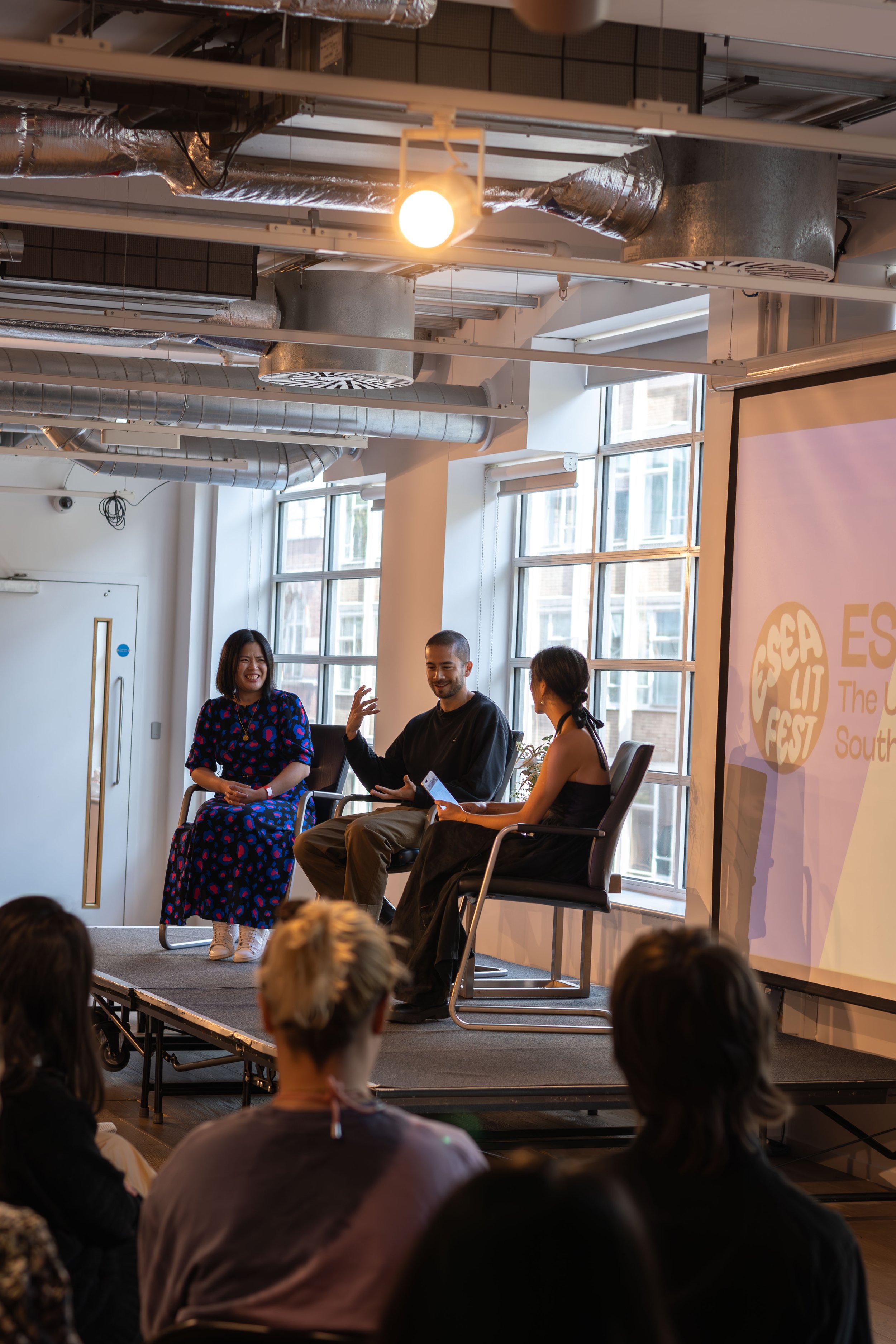
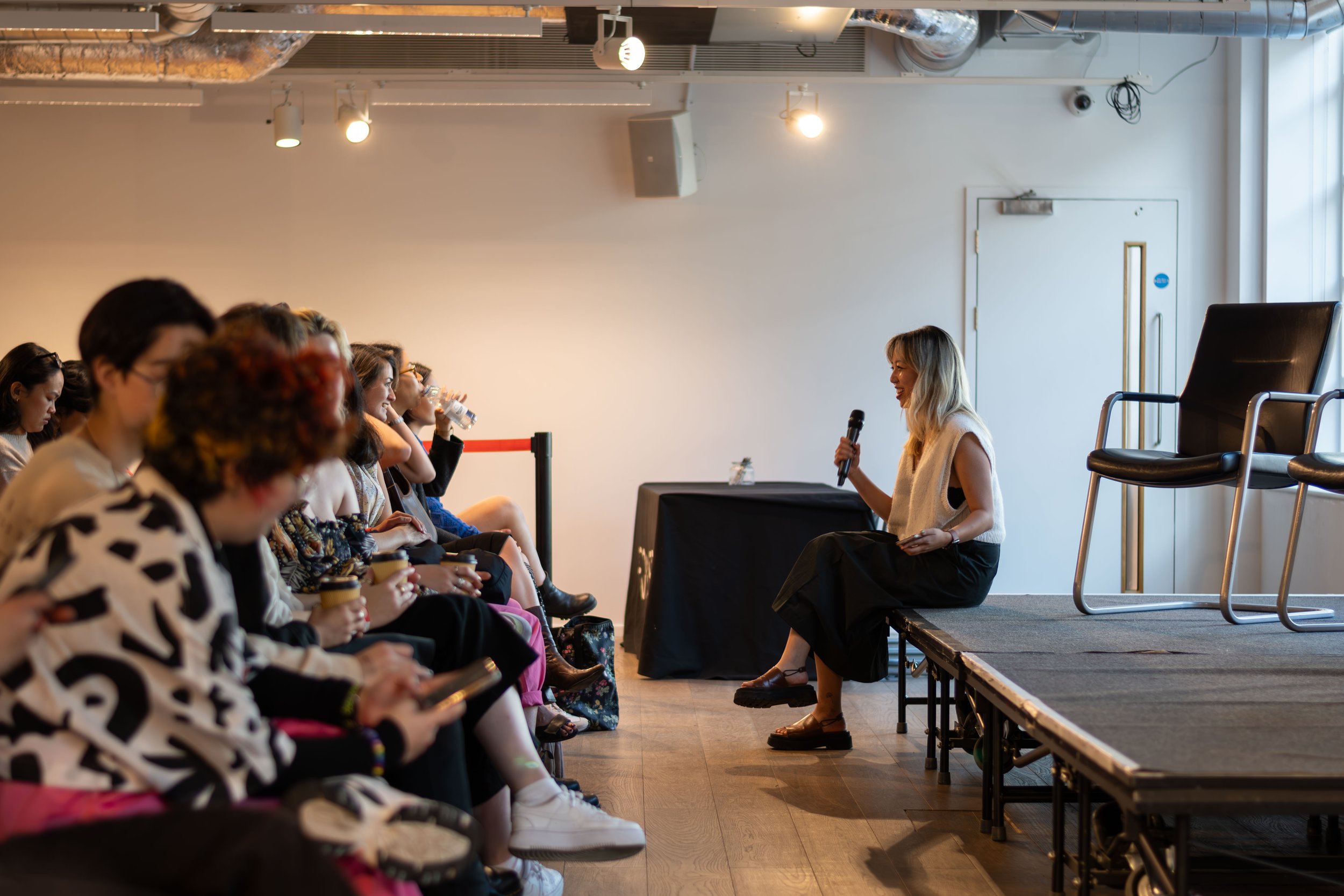
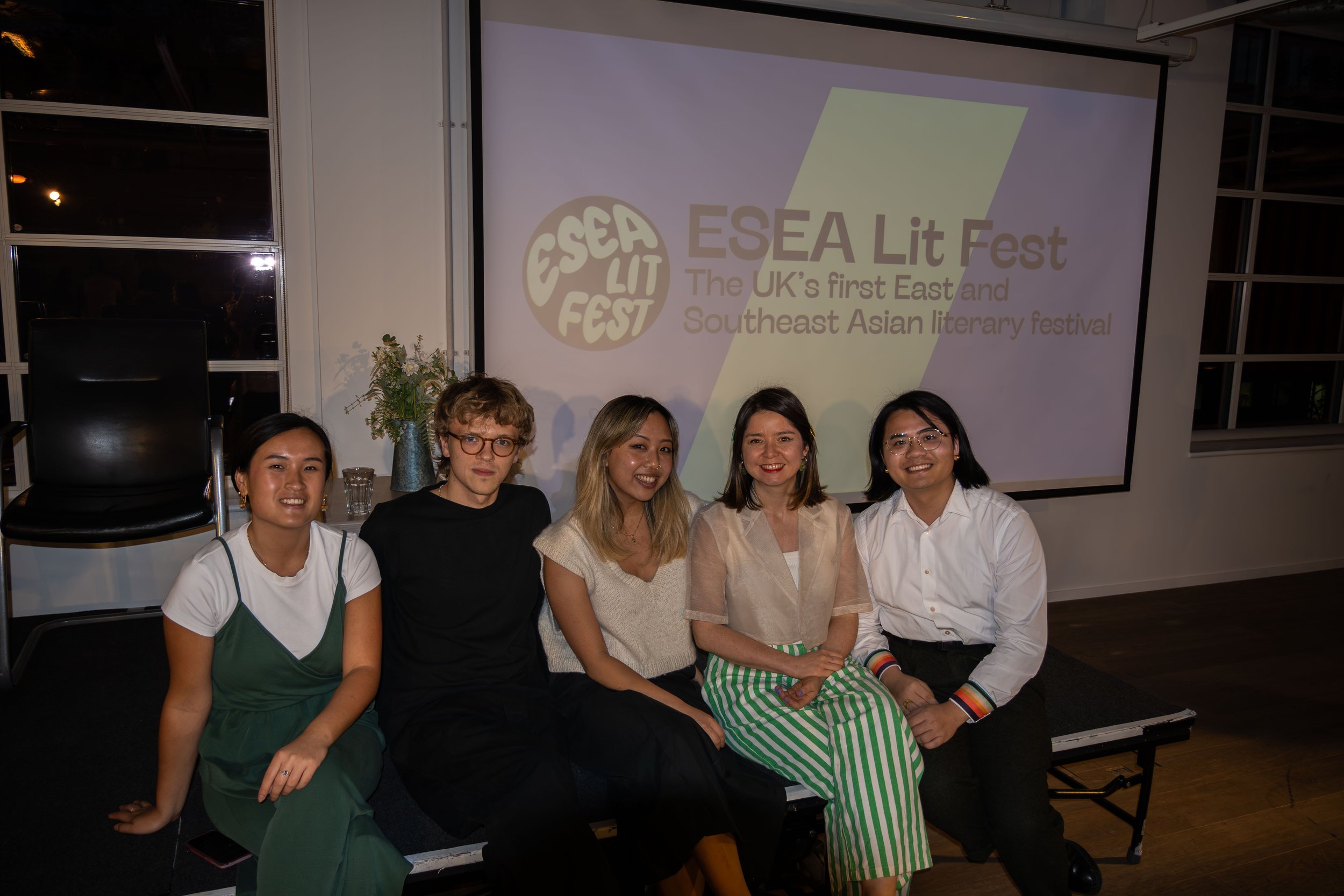
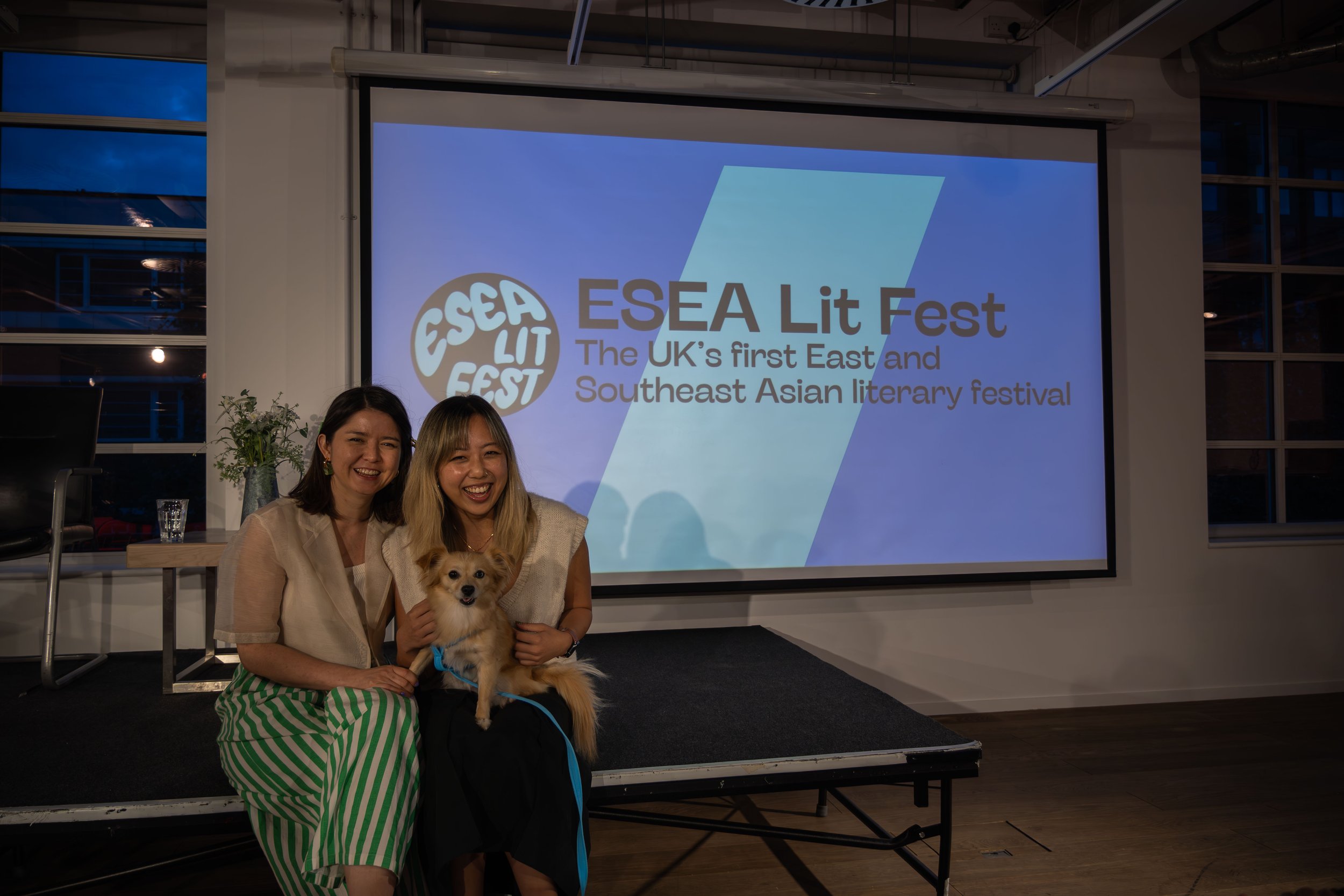
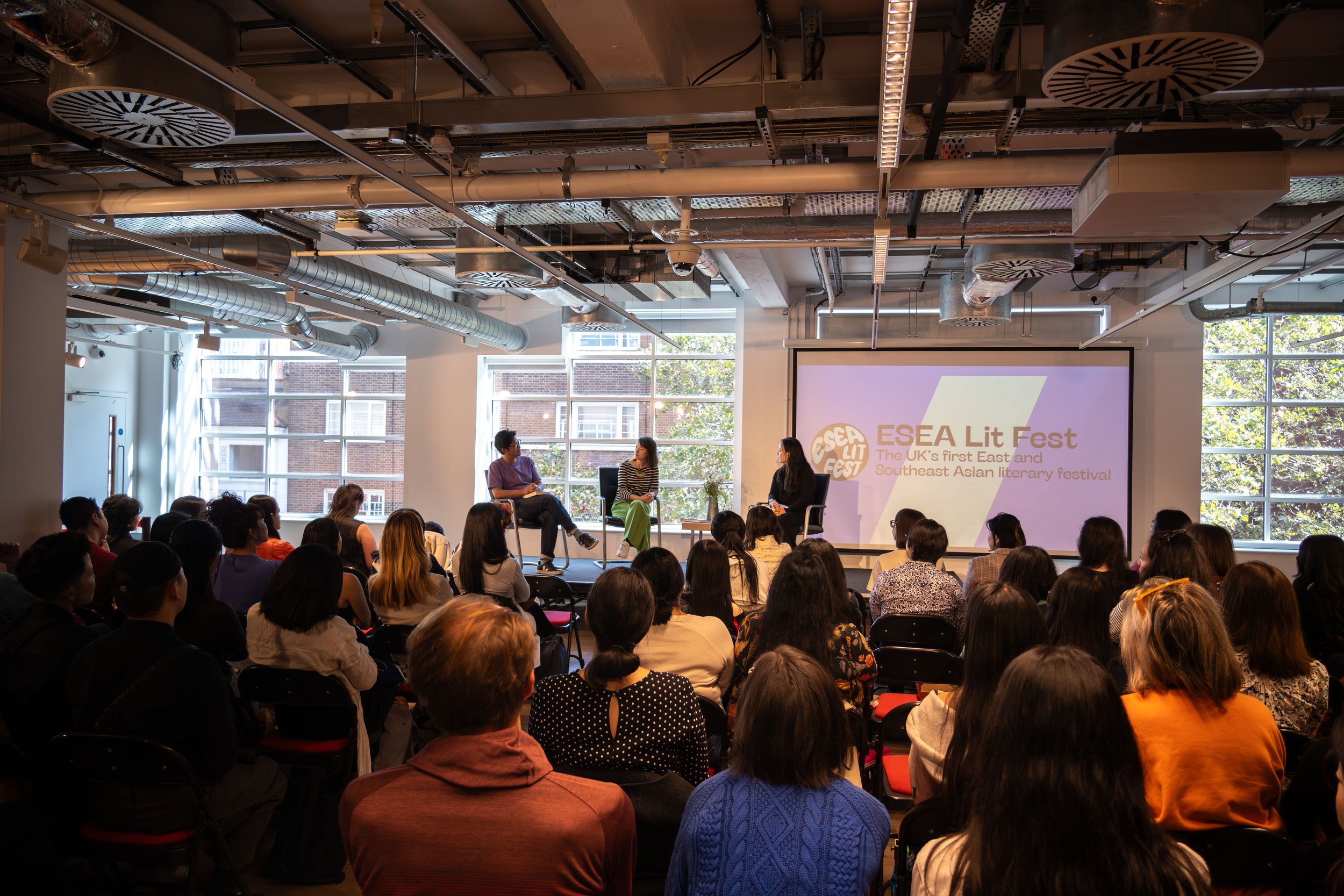
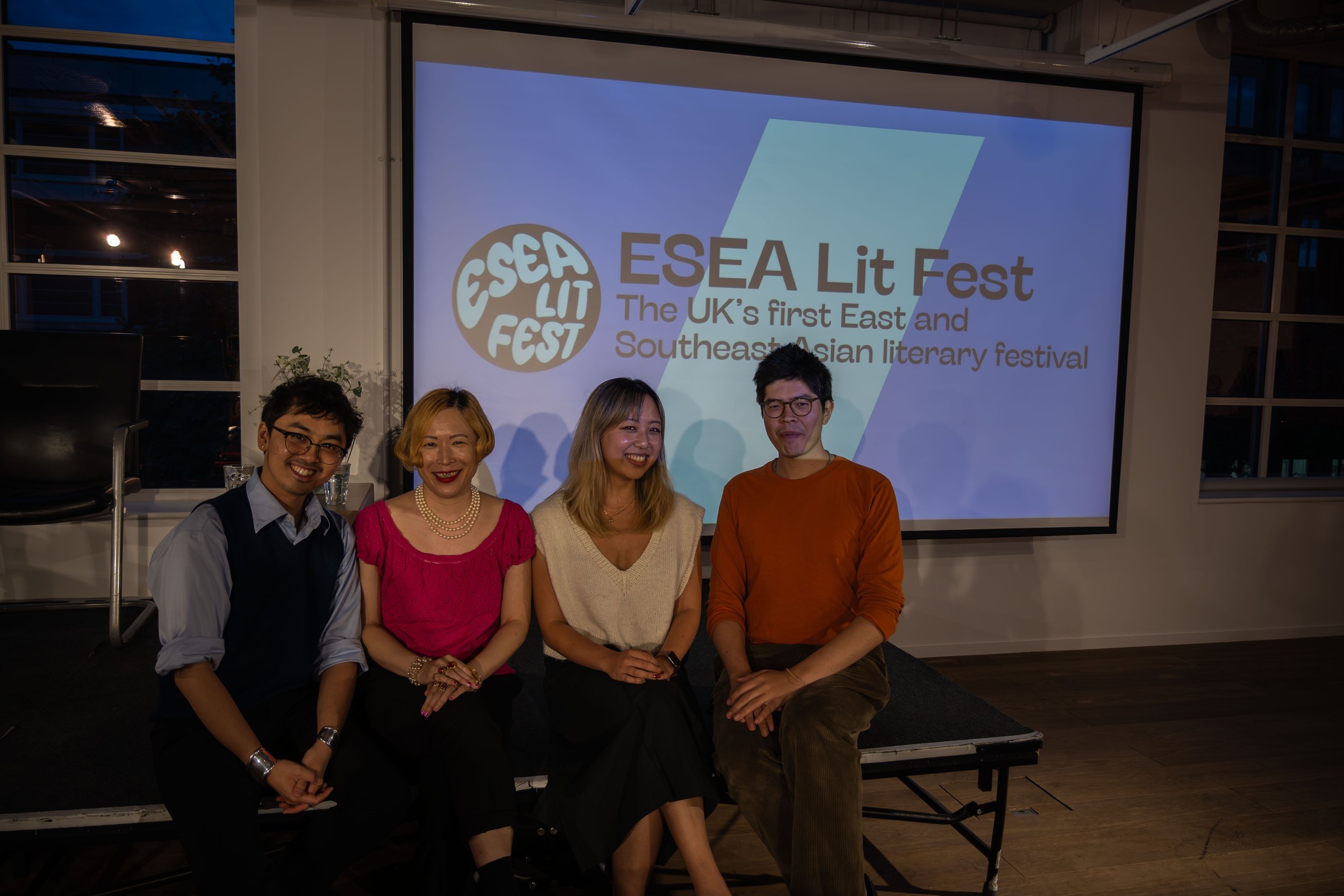
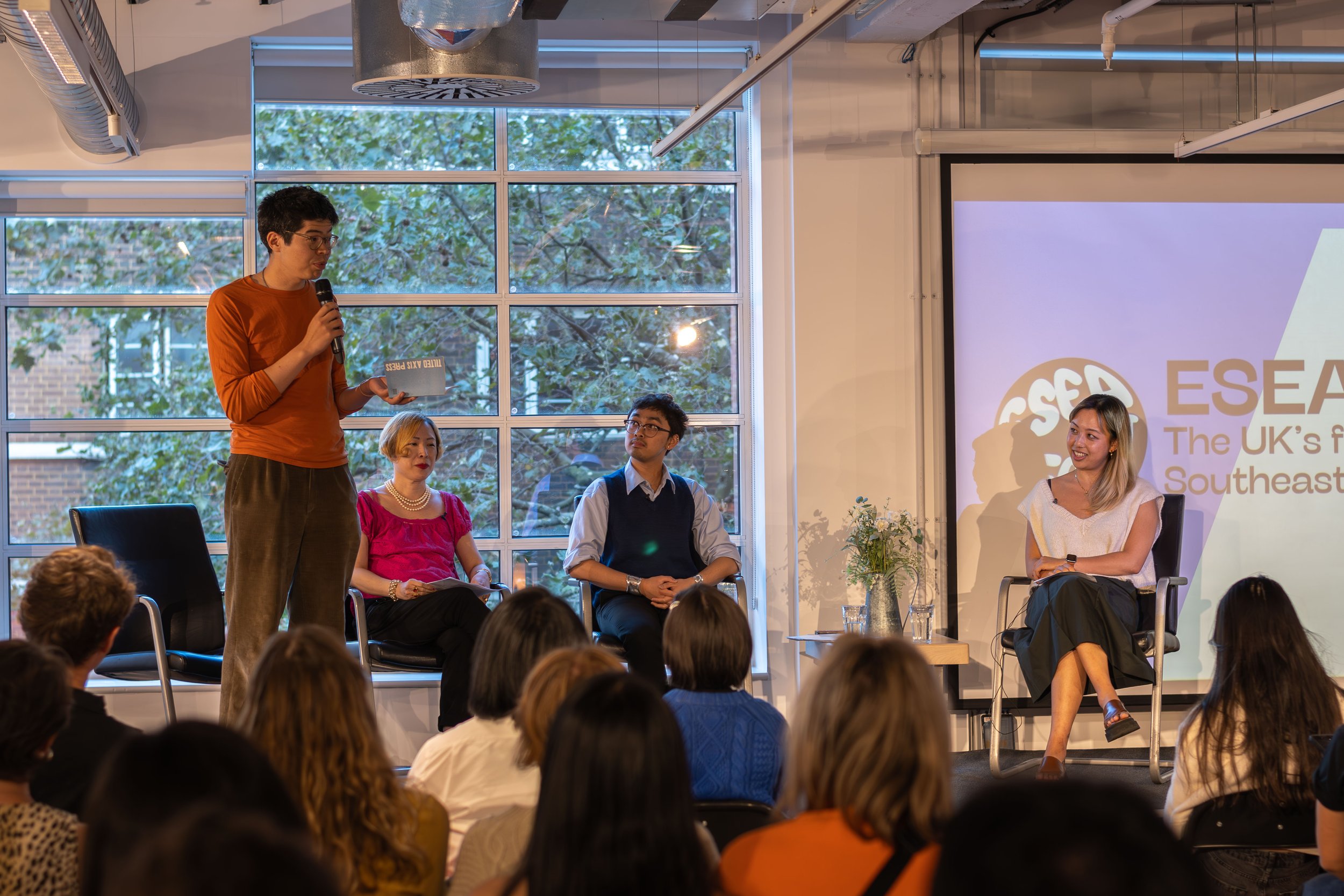
Photographer: Josie Tang

